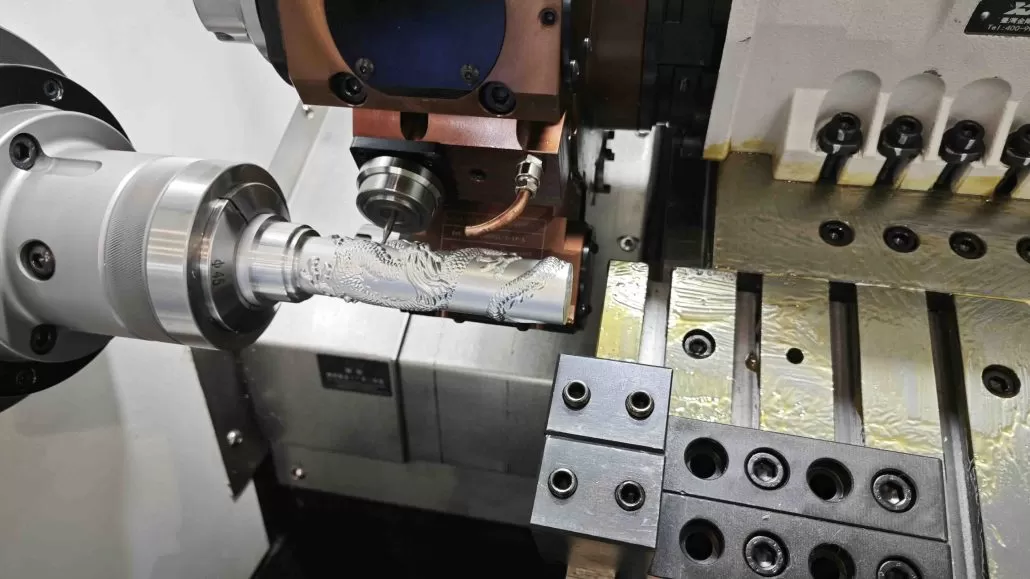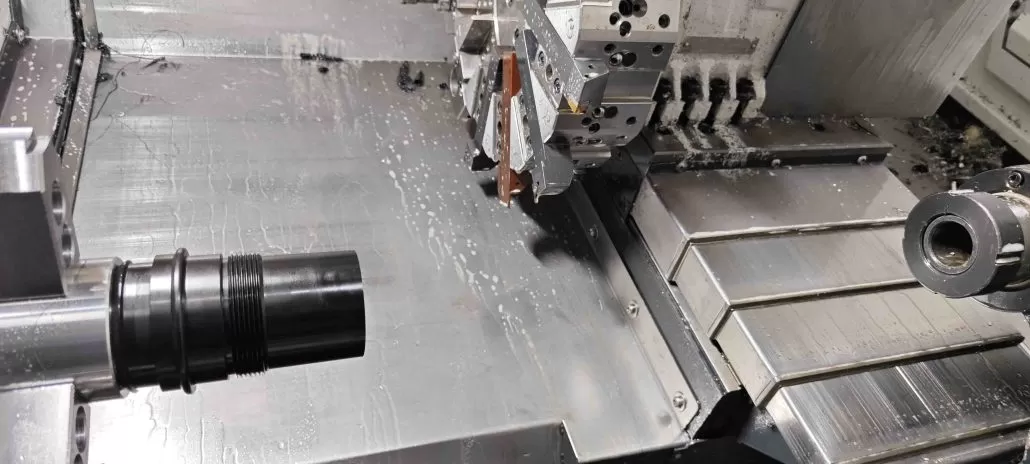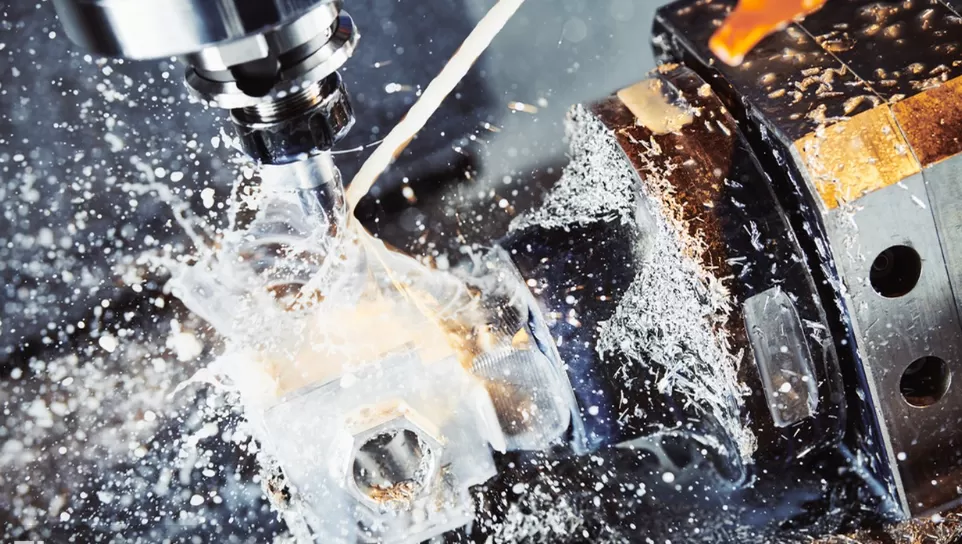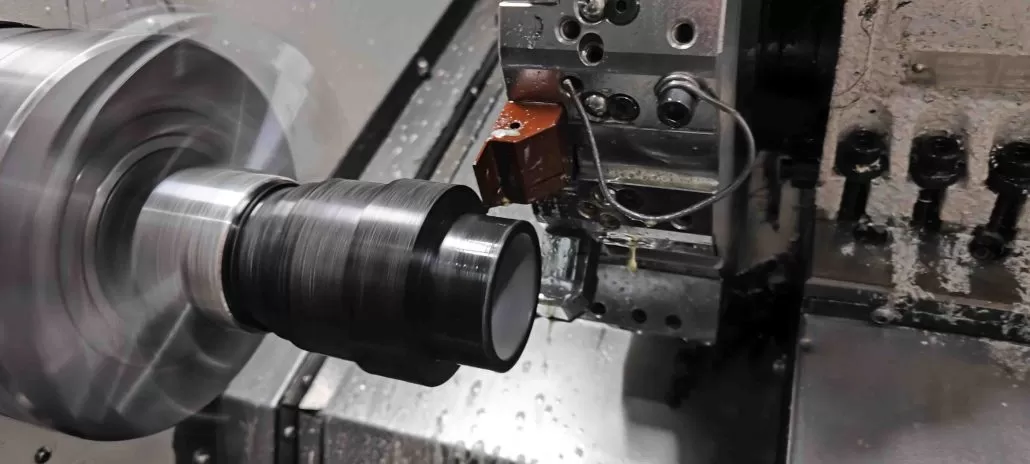CNC (Computer Numerical Control) machining is a process that uses computer programs to control machinery and tools. This technology is widely used for both plastic and metal machining. However, there are some differences between these two processes that are worth noting.
CNC Plastic Machining

CNC Metal Machining
CNC metal machining is a process that involves cutting, milling, drilling, and turning metal materials to create various parts and products. This process is often used in the production of high-volume products, such as automotive parts, aerospace components, and medical devices. Compared to plastic machining, metal machining is generally more expensive, slower, and more difficult to work with. It also produces more waste and requires more maintenance.
One of the main advantages of CNC metal machining is that it allows for a wide range of metals to be used, such as steel, aluminum, brass, and titanium. This makes it possible to create parts with different properties, such as strength, hardness, and corrosion resistance. Another advantage is that metal parts can be machined to very tight tolerances, which is important for many applications.
what is the difference between cNC palstic machining and CNC metal machining?
Metal CNC machining is more complex than plastic machining. The tools to machine metal are much more expensive and the material is tougher to work with. The tooling or cutters must be sharp, powerful, and made of special materials like carbide. Metal chips are much harder to remove than plastic chips because they are thick and act like welds when you try pushing them out of the way.
Metal machines also require more accuracy in their programming because stronger forces are necessary for shaping metal parts.
Plastic machining requires less accuracy in programming than metal machining because plastics can be cut with softer materials like carbide or brass. Plastic machines also have a lower cost for tooling because plastics don’t need very sharp tools to get clean cuts without breaking too many chips off into the air.
What Are the Disadvantages of CNC Metal Machining Compared to CNC Plastic Machining?
When it comes to CNC machining, there are advantages and disadvantages to both metal and plastic materials. While CNC metal machining is known for its strength and durability, there are some disadvantages to consider when comparing it to CNC plastic machining.
One major disadvantage of CNC metal machining is its cost. Metal materials are generally more expensive than plastic materials, which can drive up the cost of production. This can be especially problematic for small businesses or those with limited budgets.
Another disadvantage of CNC metal machining is its weight. Metal materials are typically heavier than plastic materials, which can make transportation and handling more difficult. This can be a particular concern for large or complex parts that require special equipment to move.

In addition to cost and weight, CNC metal machining also requires more specialized equipment and expertise than CNC plastic machining. Metal materials are harder and more difficult to machine than plastic materials, which requires more advanced tools and techniques. This can increase the time and cost required for production.
Finally, CNC metal machining produces more waste than CNC plastic machining. Metal materials generate more scrap and shavings during the machining process, which can increase disposal costs and harm the environment.
Overall, while CNC metal machining has its advantages, there are several disadvantages to consider when comparing it to CNC plastic machining. These include higher cost, heavier weight, specialized equipment and expertise requirements, and increased waste production.
CNC Plastic Machining VS CNC Metal Machining: Definition
CNC (Computer Numerical Control) machining is a manufacturing process that uses computer software to control the movement of machines used in cutting, drilling, and shaping materials into a desired shape. CNC machining is widely used in both plastic and metal fabrication, but there are some key differences between the two.
CNC plastic machining involves the use of machines to cut, shape, and drill plastic materials into specific shapes and sizes. Plastic machining is commonly used in the production of parts and components for various industries, such as automotive, aerospace, and medical.
CNC metal machining involves the use of machines to cut, shape, and drill metal materials into specific shapes and sizes. Metal machining is commonly used in the production of parts and components for various industries, such as aerospace, defense, and automotive.

The key difference between CNC plastic machining and CNC metal machining is the type of material being used. While plastic machining involves cutting and shaping plastic materials, metal machining involves cutting and shaping metal materials. Additionally, metal machining typically requires more specialized tools and equipment due to the hardness and durability of metals.
In summary, CNC machining is a versatile and efficient manufacturing process that can be used for both plastic and metal fabrication. However, the choice between CNC plastic machining and CNC metal machining depends on the specific requirements of the project, such as the type of material being used and the desired end product.
CNC Plastic Machining VS CNC Metal Machining: Materials Comparison
When it comes to CNC machining, two of the most popular materials are plastic and metal. While both can be used to create a wide range of parts and components, there are some key differences between the two.
Plastic Machining
Plastic machining is ideal for creating parts that do not require high strength or durability. Plastics are typically less expensive than metals, making them a cost-effective option for many applications. They are also lighter in weight, making them ideal for parts that need to be lightweight. Some common plastics used in CNC machining include:
- Acrylic
- Polycarbonate
- ABS
- Nylon
- PTFE
Metal Machining
Metal machining is ideal for creating parts that require strength and durability. Metals are typically stronger than plastics and can withstand more wear and tear. They are also ideal for parts that will be exposed to high temperatures, such as engine components. Some common metals used in CNC machining include:
- Aluminum
- Stainless steel
- Copper
- Brass
- Titanium
In conclusion, both plastic and metal have their own unique advantages and disadvantages when it comes to CNC machining. The choice between the two will ultimately depend on the specific needs of the part or component being created.

CNC Plastic Machining VS CNC Metal Machining: Cost Comparison
When it comes to CNC machining, the material being used plays a big role in determining the cost of the project. Two of the most common materials used in CNC machining are plastic and metal. In this article, we will compare the cost of CNC plastic machining versus CNC metal machining.
CNC Plastic Machining
CNC plastic machining is often less expensive than CNC metal machining. This is because plastic is a less dense material than metal, meaning it requires less time and energy to cut. Additionally, plastic is often less expensive than metal, which can lead to cost savings on material costs.
CNC Metal Machining
CNC metal machining tends to be more expensive than CNC plastic machining. This is primarily due to the higher density of metal, which requires more time and energy to cut. Additionally, metal is often more expensive than plastic, which can drive up material costs.
Factors that Affect Cost
While plastic machining is generally less expensive than metal machining, there are several factors that can affect the cost of each process. These factors include:
- Material choice
- Complexity of the part
- Quantity of parts needed
- Machining tolerances required
- Finishing requirements
Conclusion
Overall, CNC plastic machining tends to be less expensive than CNC metal machining. However, there are many factors that can affect the cost of each process, and it’s important to carefully consider all of them when determining the most cost-effective option for your project.

